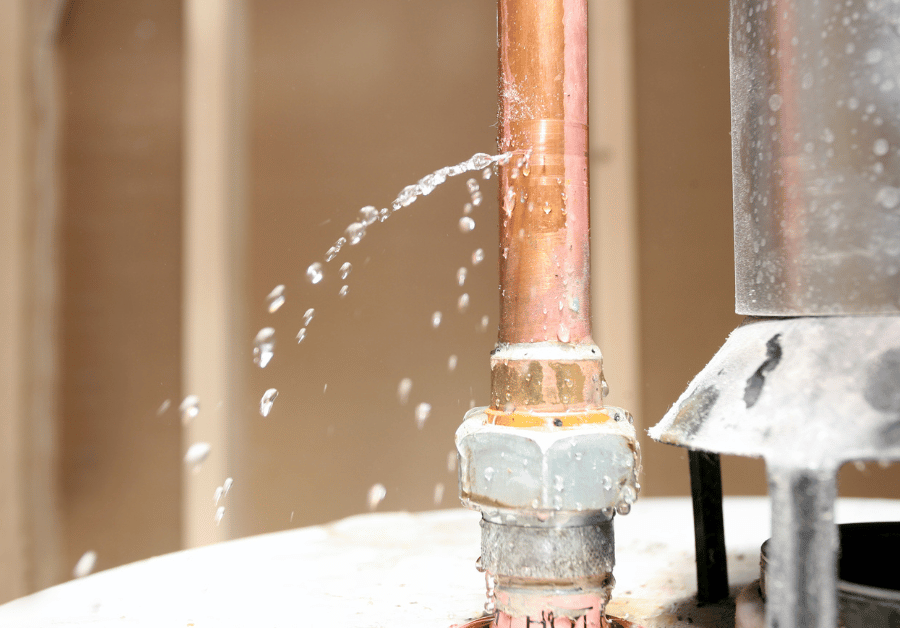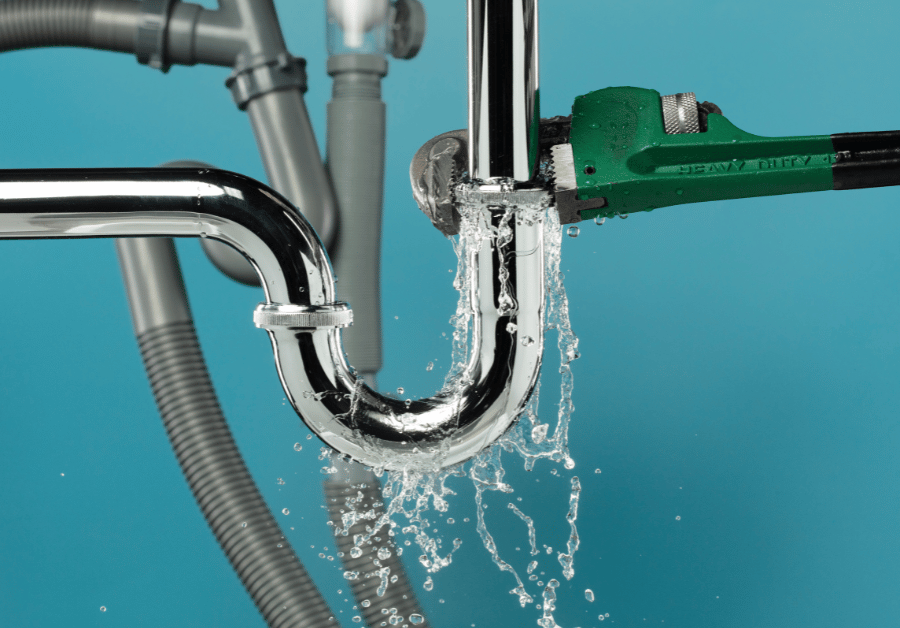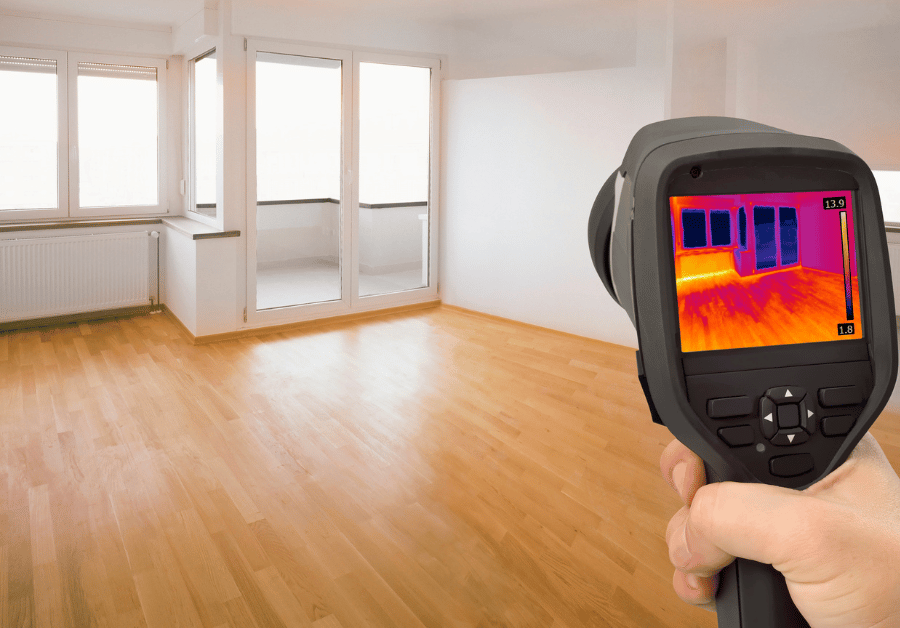Urgent Leak Detection Near Me: Your Australian Guide to Finding & Fixing Hidden Leaks
Are you seeing a mysterious spike in your water bill? Notice a damp patch on your wall or a persistent musty smell? These could be tell-tale signs of a hidden water leak, a silent but destructive problem that can lead to significant property damage, costly repairs, and a shocking waste of our precious water resources. When you're searching for "leak detection near me" in Australia, especially across bustling cities like Sydney, Melbourne, Perth, Brisbane, Adelaide, or Hobart, you're looking for more than just a plumber; you need a specialist with the right equipment and expertise to accurately detect a leak without unnecessary disruption.
At Get 3 Quote, we understand the urgency and stress a suspected water leak can cause. Our mission is to connect you with trusted, local leak detection specialists who employ advanced leak detection techniques to pinpoint the source of the problem quickly and efficiently. Don't let a small drip turn into a major disaster – understanding the signs, the technology, and how to find the best leak detection services is your first step towards peace of mind.
Why Professional Leak Detection is Absolutely Essential for Your Australian Home or Business
Many leaks go unnoticed for weeks, months, or even years, silently causing damage behind walls, under floors, or beneath your property. These are the infamous hidden leaks that can wreak havoc. While you might try to detect a leak yourself by checking your water meter or looking for obvious wet spots, many leaks require professional intervention. Here’s why investing in expert leak detection is crucial:
- Prevent Costly Property Damage: A continuous water leak can lead to structural damage, mould growth, timber rot, and even compromise your home's foundation. Early detection prevents these extensive and expensive repairs.
- Save Water and Money: Australia is a dry continent, and water is a precious commodity. A single dripping tap can waste thousands of litres annually, let alone a burst pipe. Professional water leak detection helps you conserve water and significantly reduce your utility bills, making you more waterwise.
- Maintain Health and Safety: Mould and mildew thrive in damp environments caused by leaks, posing serious health risks, especially for those with respiratory issues. Eliminating the source of moisture improves indoor air quality.
- Non-Invasive Solutions: Gone are the days of tearing down walls or digging up your garden indiscriminately. Modern leak detection equipment uses non-invasive techniques, saving you time, mess, and additional repair costs.
- Peace of Mind: Knowing your property is free from hidden leaks provides immense peace of mind, protecting your biggest asset.
Signs You Might Have a Hidden Water Leak
Being aware of the subtle indicators of a water leak can save you a lot of trouble down the line. Here are the most common signs that you might need professional leak detection services:
1. Unexplained High Water Bills
This is often the first and most obvious sign. If your water bill suddenly skyrockets without a change in your water use habits, it's a strong indicator of a continuous leak. Check your water meter: turn off all water-using appliances and taps in your home. If the meter is still spinning, you likely have a leak somewhere on your property.
2. Damp Spots, Stains, or Discolouration on Walls, Ceilings, or Floors
Water leaks can manifest as mysterious damp patches, water stains, or discolouration on internal walls, ceilings, or flooring. These can be particularly noticeable in bathrooms, kitchens, laundries, or near external pipework. A shower leak or a plumbing leak behind a wall can lead to significant visible damage over time.
3. Musty Odours or Visible Mould
Even if you can't see the water, a persistent musty smell often indicates hidden moisture and mould growth, typically in areas like under sinks, behind walls, or in crawl spaces. This is a clear sign that you need to find leak detection specialists.
4. Decreased Water Pressure
A sudden drop in water pressure could mean there's a leak in your main water supply line or within your internal plumbing system, allowing water to escape before it reaches your taps.
5. Sound of Running Water When Taps Are Off
Listen carefully for the sound of running water, dripping, or trickling when no taps or appliances are in use. This could point to a pipe leak or an issue with your toilet cistern.
6. Cracks in Foundation or Pavement
Persistent underground water leaks can saturate the soil around your property's foundation, leading to cracks in concrete slabs, driveways, or pathways. This is a serious sign that requires immediate attention from a leak detection specialist.
The Science of Leak Detection: How Specialists Find Hidden Leaks
Modern leak detectors use a range of sophisticated equipment and techniques to accurately pinpoint leaks, often without needing to dig or demolish. This advanced leak detection technology ensures a noninvasive approach, saving you time and money.
1. Acoustic Leak Detection
This is one of the most common methods for underground water pipes. Specialists use highly sensitive listening devices (ground microphones or correlators) to amplify the sound of water escaping from a pipe. Different types of pipes and soil conditions produce unique sounds, and experienced leak detection specialists can interpret these sounds to pinpoint the leak's exact location.
2. Thermal Imaging (Infrared Cameras)
A thermal camera or thermal imaging device detects minute temperature differences on surfaces. Water escaping from a hot water pipe will create a warmer signature, while cold water leaks might create cooler spots. This is particularly effective for identifying leaks behind walls, under floors, or in wet areas like bathrooms (e.g., a shower leak detection). It's a fantastic non-invasive leak detection method.
3. Tracer Gas Detection (Hydrogen Tracer Gas)
For hard-to-find leaks or those in complex piping systems, a non-toxic, inert gas mixture (often hydrogen tracer gas, which is lighter than air) is introduced into the pipe. The gas escapes at the point of the leak and is detected on the surface using a highly sensitive probe. This method is incredibly accurate for various pipe materials and depths, even for natural gas leaks.
4. Camera Inspections (CCTV Drain Cameras)
For drain pipes or sewer lines, a small, waterproof camera (drain camera or CCTV drain camera) is inserted into the pipe. The camera transmits live video footage to a monitor, allowing the specialist to visually inspect the pipe's interior for cracks, blockages, or breaks that could be causing a pipe leak. This is crucial for plumbing leak detection in difficult-to-access areas.
5. Moisture Meters
These devices are used to measure the moisture content in building materials (walls, floors, ceilings). They help confirm the presence of moisture and define the spread of water damage, guiding the leak detector to the general area of the leak before more precise methods are used.
6. Pressure Testing
A simple but effective method, pressure testing involves isolating sections of the plumbing system and applying pressure. A drop in pressure indicates a leak within that specific section, narrowing down the search area significantly.
Finding the Right Leak Detector "Near Me" in Australia's Major Cities

When you're facing a potential leak, you need a reliable, experienced, and local leak detection specialist. Whether you’re in Sydney, Melbourne, Perth, Brisbane, Adelaide, or Hobart, the process of finding the best professional should involve a few key considerations:
- Local Expertise: A local leak detection company understands the specific plumbing systems, building codes, and even soil conditions unique to your region. For example, a specialist in Western Australia might be familiar with different pipe materials or ground conditions compared to someone in South Brisbane or on the Gold Coast.
- Licensing and Insurance: Always ensure the leak detector is fully licensed and insured. This protects you in case of any accidental damage during the detection process.
- Modern Equipment: As discussed, the best companies use advanced leak detection equipment like thermal cameras, tracer gas, and acoustic listening devices. Ask about their technology.
- Transparent Pricing: Reputable services will provide clear quotes and explain their pricing structure upfront.
- Reputation and Reviews: Check online reviews and testimonials. Companies like Australian Leak Detection, Flowtec Leak Detection, or Mr Leak Detector often have strong reputations, but it's always good to check local feedback. Look for phrases like "highly recommend" or "positive professionalism punctuality quality."
- Comprehensive Service: Do they just find the leak, or do they also offer repair services? Some specialise only in detection, while others offer a full repair service.
Local Considerations for Leak Detection
In Sydney Water's service area, understanding your responsibility for leaks (often past the water meter) is crucial. Similarly, in Perth, the Water Corporation provides advice on detecting leaks. Across Victoria and Western Australia, waterwise initiatives encourage prompt leak repairs to conserve water. Specialists in areas like the South Brisbane Gold Coast region are well-versed in handling diverse property types, from residential homes to commercial buildings and pools spas fountains.
Common Areas for Leaks in Australian Properties
1. Plumbing Leaks
These are the most frequent culprits. They can occur in supply lines, drainage pipes, or fixtures like taps and toilets. A plumbing leak detection specialist can use various methods to find these, often focusing on areas with high water use.
2. Shower Leaks and Wet Areas
Bathrooms and laundries are prone to leaks due to constant water exposure. A shower leak can manifest as dampness on adjacent walls, flooring, or even the ceiling below. Professional wet area leak detection often involves thermal imaging or moisture meters.
3. Pipe Leaks (Underground or Within Walls)
Whether it's a burst water pipe underground leading to your property or a slow drip within a wall, these can be challenging to locate without specialised equipment. Acoustic detection and tracer gas are invaluable here for accurate pipe location.
4. Pool Leaks
If your pool water level is dropping faster than usual, you likely have a pool leak. Specialists in pool leak detection in Melbourne, for instance, use dye testing, acoustic equipment, and pressure testing on pipes connected to the pool to find the exact source. This also extends to spas and fountains.
5. Irrigation System Leaks
Often overlooked, leaks in irrigation systems can waste significant amounts of water, especially in larger properties or gardens. Regular checks and professional detection can save water and ensure efficient watering.
The Leak Detection Process: What to Expect

When you engage a professional leak detection specialist through Get 3 Quote, here's a general overview of what the process typically involves:
- Initial Consultation & Assessment: The specialist will discuss your observations, any visible signs of damage, and your water bill history. They'll conduct an initial visual inspection of your property.
- Isolation & Testing: They may isolate sections of your plumbing system to narrow down the leak's general area. This might involve pressure testing or checking your water meter for continuous movement.
- Application of Advanced Equipment: Depending on the suspected location and type of leak, they will deploy their specialised equipment (e.g., acoustic listening devices, thermal camera, tracer gas, or drain camera). This is where their expertise truly shines, interpreting the data from their tools.
- Pinpointing the Leak: Once the exact location of the leak is identified, the specialist will mark the spot. They will explain their findings clearly, often with photographic or video evidence.
- Reporting & Recommendations: You'll receive a detailed report outlining the leak's location, its likely cause, and recommendations for repair. Some companies, like Find Leak Detection, offer comprehensive prevention and repair services.
- Repair (Optional): Depending on the service provider, they may offer immediate repair services or provide a quote for the necessary work.
- Leak Allowance: In some cases, if a significant hidden leak is repaired, you might be eligible for a leak allowance from your local water authority, which can help offset the cost of the wasted water.
Why Choose Get 3 Quote to Find Your Leak Detection Specialist?
When you're searching for "leak detection near me," you want speed, reliability, and value. Get 3 Quote simplifies this process, offering a streamlined way to connect with the best in the business:
- Verified Professionals: We partner only with licensed, insured, and reputable leak detection specialists across Australia, from Sydney to Perth, ensuring you receive quality service.
- Local Experts, Nationwide: Whether you need leak detection in Melbourne, Brisbane, Adelaide, or Hobart, our network covers major metropolitan areas and beyond, ensuring you get a truly local service.
- Compare & Save: Instead of calling multiple companies yourself, we allow you to receive up to 3 detailed quotes from different professionals. This empowers you to compare services, pricing, and expertise, helping you choose the best match for your specific needs and budget.
- Efficiency & Convenience: Our simple online form takes minutes to fill out. We do the legwork, connecting you with available professionals quickly, so you can address your leak without delay.
- Transparency: With multiple quotes, you gain transparency in pricing and service offerings, fostering trustworthiness in your decision-making process.
Preventative Measures for a Waterwise Home
While professional leak detection services are crucial for existing problems, a proactive approach can help prevent future issues:
- Regularly Check Your Water Meter: Make it a habit to check your water meter periodically, especially after periods of high water use, to catch potential leaks early.
- Inspect Taps and Fixtures: Regularly check taps, showerheads, and toilet cisterns for drips or leaks. Even minor issues can escalate.
- Monitor Water Pressure: Be aware of sudden changes in water pressure in your home.
- Maintain Your Plumbing System: Consider professional plumbing inspections, especially for older properties. A qualified plumber can identify potential weaknesses in your water pipe system.
- Be Mindful of Outdoor Water Use: Check irrigation systems and outdoor taps for leaks, particularly during warmer months.
- Question 1: How can I tell if I have a hidden water leak at home?Question 2: What methods do professionals use for leak detection in Australia?Question 3: Is leak detection covered by insurance in Australia?Question 4: Why should I use Get 3 Quote to find leak detection services?
Don't Let a Hidden Leak Drain Your Wallet and Damage Your Home!
A water leak, no matter how small, can lead to significant problems if left unaddressed. From escalating water bills to extensive property damage and potential health hazards, the risks are too high to ignore. When you need professional leak detection near me, you need a service that is fast, reliable, and uses the most effective techniques.
Get 3 Quote makes finding the right leak detection specialist in Sydney, Melbourne, Perth, Brisbane, Adelaide, Hobart, and across Australia, incredibly simple. Don't delay – protect your property and conserve water by finding and fixing leaks promptly.
Ready to get started? Tell us what you need, get up to 3 detailed quotes from verified local professionals, and choose the best match for your job.
